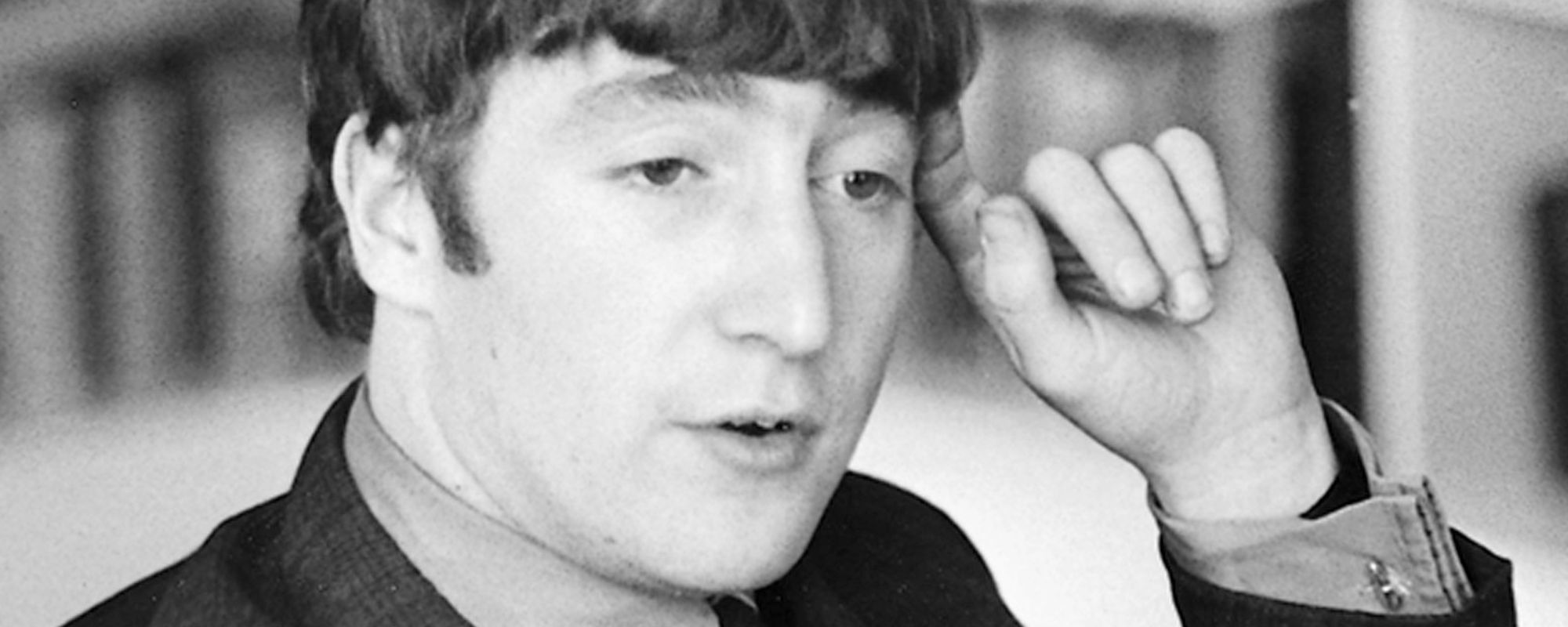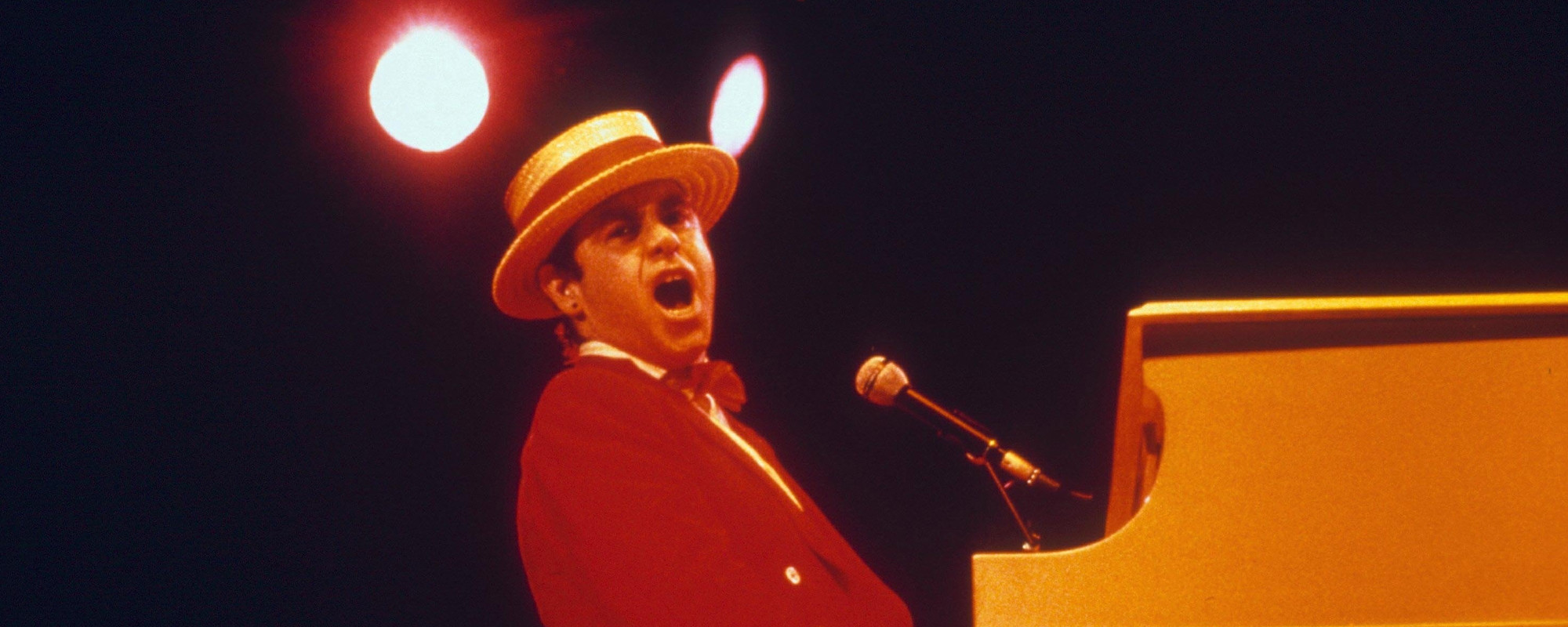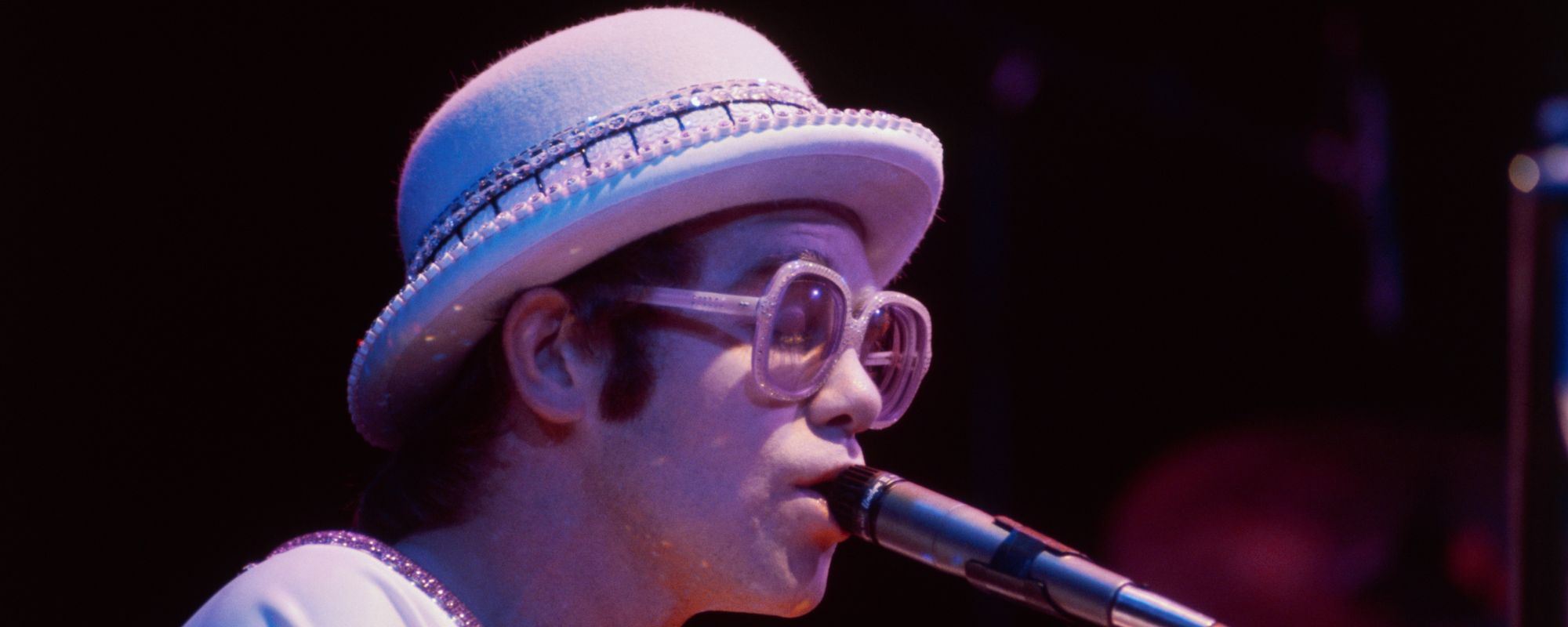Elton John‘s third studio album, Tumbleweed Connection, was released in 1970 and written by John and his creative partner, Bernie Taupin. It was based on Americana and country-western music. But at the time, neither Elton John nor Bernie Taupin had set foot in America.
Videos by American Songwriter
John finally had a breakthrough in April 1970 with his self-titled second album. He was gearing up to release his third in October. Several songs on Tumbleweed Connection were recorded during sessions for Elton John, such as “Come Down In Time”, “Country Comfort”, and “Burn Down The Mission”. There was a common concept for this album, which took inspiration from folk and Americana genres.
“Everybody thinks that I was influenced by Americana and by seeing America first hand, but we wrote and recorded the album before we’d even been to the States,” said Taupin, recorded in the liner notes of the album. “It was totally influenced by The Band’s album, Music From Big Pink, and Robbie Robertson’s songs.”
“I’ve always loved Americana, and I loved American Westerns,” Taupin added. “I’ve always said that ‘El Paso’ [by Marty Robbins] was the song that made me want to write songs. It was the perfect meshing of melody and storyline, and I thought that here was something that married rhythms and the written word perfectly.”
Despite the Popularity of ‘Tumbleweed Connection’, the Album Did Not Produce a No. 1 Hit
Tumbleweed Connection featured some amazing musicians who backed up Elton John in his band. Dee Murray and Nigel Olssen, who became long-time collaborators with John, were featured together for the first time on this album. They make up the rhythm section for the song “Armoreena”. Additionally, Elton John’s labelmate, the band Hookfoot, also appeared on the album. Specifically, guitarist Caleb Quaye performed in the backing band. Additionally, an early cut of “Madman Across The Water” was recorded during this session. Mick Ronson, who had made a name for himself working with David Bowie, was featured on guitar.
However, even with Taupin and John’s lyrics, a solid concept, and incredible musicians, Tumbleweed Connection didn’t produce a no. 1 hit single. Still, as a singular concept album, it did remarkably well. It rose to no. 2 on the U.K. albums chart and no. 5 on the Billboard 200. It initially debuted at no. 28 in the United States before peaking in four weeks. This was a prime spot for a relatively new artist like Elton John, and he quickly began making a name for himself.
Tumbleweed Connection captured US listeners and critics partially because of its country-western style. It was described as “one of the best country-rock albums ever written by London cowboys” in a Rolling Stone review. The album had a familiar concept for Americana fans. But it was executed from an outsider perspective, casting a different and interesting light on the art of narrative song.
For Elton John, Tumbleweed Connection was a near-flawless album.
“Lyrically and melodically, that’s probably one of our most perfect albums,” he once said, as quoted in the liner notes of the 1995 reissue. “I don’t think there’s any song on there that doesn’t melodically fit the lyric.”
Featured Image by George Wilkes/Hulton Archive/Getty Images













Leave a Reply
Only members can comment. Become a member. Already a member? Log in.